US teen Mohammed Ibrahim released from Israeli prison after nine months
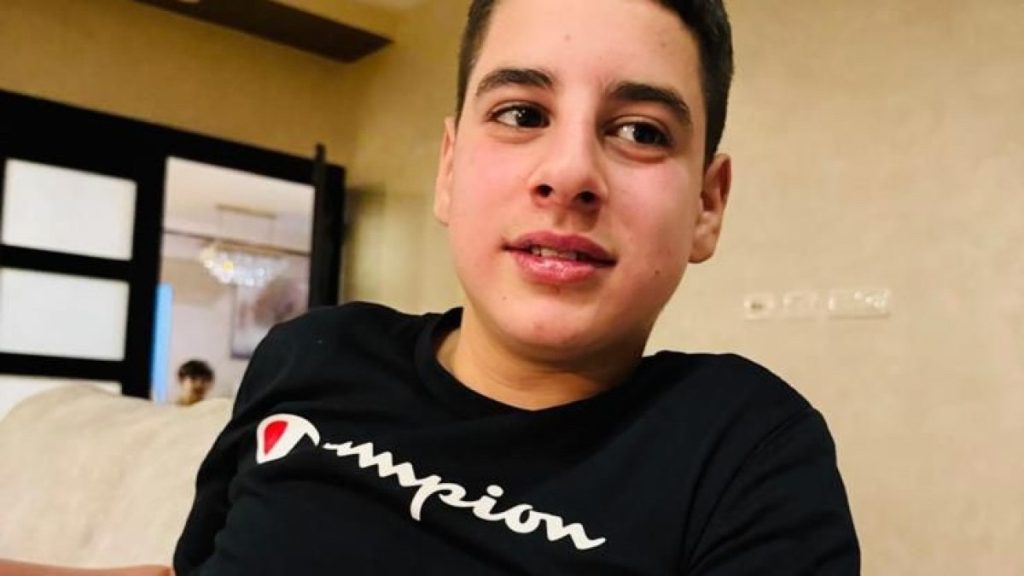
Advocates say the 16-year-old’s health had been in decline since his arrest in February for allegedly throwing rocks. Published On 27 Nov 202527 Nov 2025 Click here to share on social media share2 Share Israeli authorities have freed Palestinian American teenager Mohammed Ibrahim after more than nine months of detention, in a case that advocates say embodies Israeli abuses against Palestinians in the occupied West Bank. Mohammed’s release on Thursday came after a months-long pressure campaign from United States lawmakers and civil rights groups. Recommended Stories list of 3 itemsend of list The teenager from Florida was 15 years old in February when he was arrested and taken from his family home in the town of al-Mazraa ash-Sharqiya, near Ramallah. He turned 16 while being held in Israeli jail, where he drastically lost weight and contracted a skin infection. “Words can’t describe the immense relief we have as a family right now, to have Mohammed in his parents’ arms,” Mohammed’s uncle Zeyad Kadur said in a statement. “We couldn’t believe Mohammed was free until his parents wrapped their arms around him and felt him safe.” Mohammed was arrested over allegations that he threw rocks at Israeli settlers, which he denied. His father, Zaher Ibrahim and other relatives told Al Jazeera earlier this year that Mohammed was blindfolded and beaten during February’s raid on his family home. Israeli authorities did not allow him to contact his family while in prison, nor did he have any visitation rights. The only updates his loved ones were receiving were through US officials, who were granted access to Mohammed. Throughout his detention, his family members pleaded with the administration of US President Donald Trump to push for his release — or at least ensure that he had access to adequate food and healthcare. Advertisement “Israeli soldiers had no right to take Mohammed from us in the first place,” Kadur said in Thursday’s statement. “For more than 9 months, our family has been living a horrific and endless nightmare, particularly Mohammed’s mother and father, who haven’t been able to see or touch their youngest child for nearly a year, all while knowing Israeli soldiers were beating him and starving him.” The pressure campaign to release Mohammed intensified over the past few weeks amid reports that his health was deteriorating. Last month, 27 US lawmakers joined a letter urging the Trump administration to push Israel to free him. Individual legislators, most prominently Democratic Senator Chris Van Hollen, have also been raising awareness for the case and demanding Mohammed’s release. Thursday’s statement thanked those who pushed for Mohammed’s release and said the family plans to celebrate his freedom by celebrating the teenager’s 16th birthday belatedly, with his mother Muna serving his favourite meal. “No mother, father, parent, brother, sister, aunt, uncle, or child should ever have to go through what Mohammed just went through,” Kadur wrote. Adblock test (Why?)
The numbers behind UN report on women and girls killed
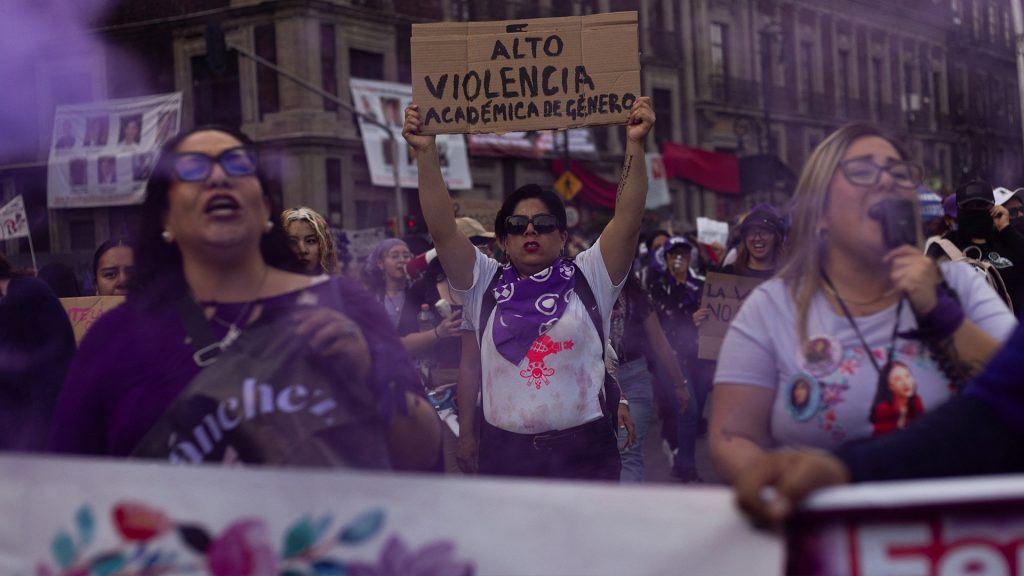
NewsFeed A UN report has found that at least 83,000 women and girls were intentionally killed last year, about 1 every six minutes. Al Jazeera’s Soraya Lennie breaks down the numbers. Published On 27 Nov 202527 Nov 2025 Click here to share on social media share2 Share Adblock test (Why?)
Tunisia frees prominent lawyer and critic of President Saied
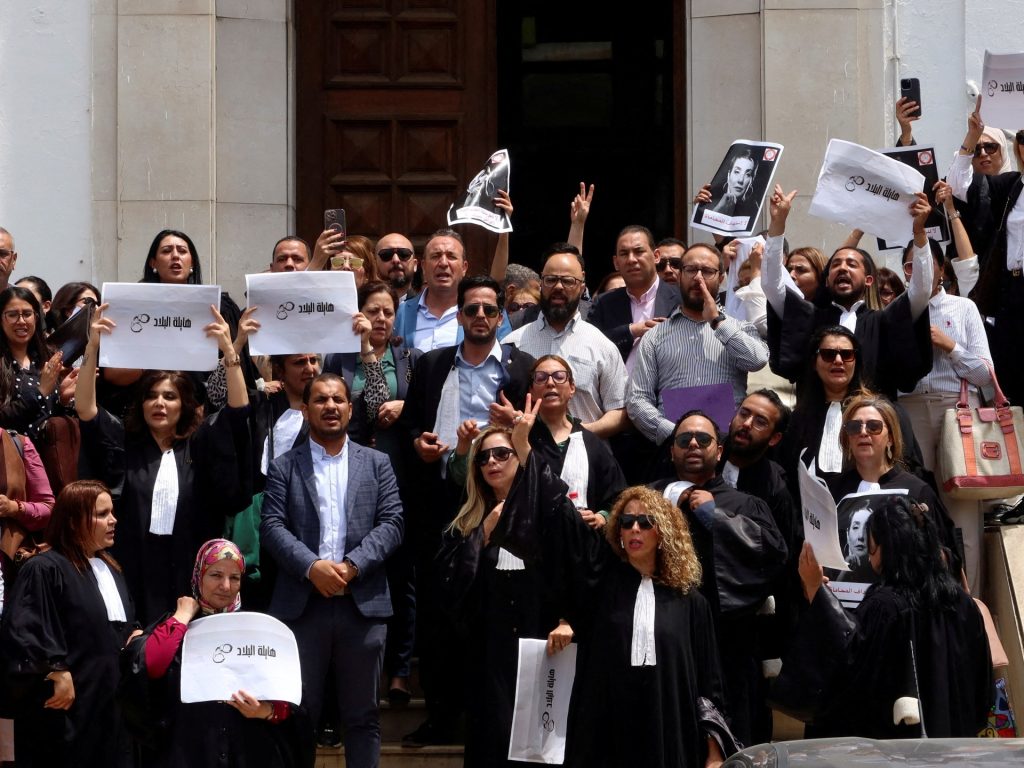
Sonia Dahmani, arrested in 2024 after questioning government policy on African refugees and migrants, says she hopes her release will mark end of ‘nightmare’ for herself and other prisoners. Published On 27 Nov 202527 Nov 2025 Click here to share on social media share2 Share Tunisia has freed prominent lawyer Sonia Dahmani, a vocal critic of President Kais Saied, after a year and a half in prison. Dahmani, who is also a media commentator, is widely seen as a leading dissenting voice in Tunisia, and her arrest prompted local protests demanding her release and international criticism. She was convicted over comments during a television appearance that questioned the government’s stance on undocumented African refugees and migrants in Tunisia. When asked whether they would try to stay and “conquer” Tunisia, Dahmani said: “What kind of extraordinary country are we talking about? The one that half of its youth want to leave?” A court said the comments had insulted Tunisia and spread false information intended to harm it. As Dahmani was released from a prison in Manouba near Tunis, dozens of her family members and activists chanted: “The police state’s era of repression is over.” She told reporters, “I hope this is the end of the nightmare for me and all the other prisoners.” Her lawyer Sami Ben Ghazi said the justice minister had issued a release order under a system that enables prisoners to apply for release after serving half their sentences. The National Syndicate of Tunisian Journalists welcomed Dahmani’s release and called for the release of other detained journalists. International and local rights groups said Dahmani’s imprisonment last year marked a deepening crackdown on dissent in the North African country. During a sweeping power grab in July 2021, Saied suspended parliament and expanded executive power so he could rule by decree. Since then, the president has jailed many of his critics. Advertisement Many of the powers that Saied had taken for himself were later enshrined in a new constitution, ratified in a widely boycotted 2022 referendum, while media figures and lawyers critical of Saied have been prosecuted and detained under a harsh “fake news” law enacted that same year. Saied says his actions are legal and aimed at ending years of chaos and rampant corruption. Widespread crackdown Amnesty International said this month that a crackdown on rights groups has reached critical levels with arbitrary arrests, detentions, asset freezes, banking restrictions and suspensions targeting 14 NGOs. Human Rights Watch said more than 50 people, including politicians, lawyers, journalists and activists, have been subjected to arbitrary arrest or prosecution since late 2022 for exercising their rights to freedom of expression, peaceful assembly and political activity. Early in Saied’s tenure, his government focused its crackdown on the Ennahdha Party. Tunisian courts have handed several jail sentences to Ennahdha’s leader, former Parliament Speaker Rached Ghannouchi, in cases that his supporters said are politically motivated. Even Saied’s former allies have not been spared in the crackdown. Nadia Akacha, the Tunisian president’s former chief of staff, who was considered one of his closest and most influential aides, was sentenced to 35 years in prison in absentia in July. Adblock test (Why?)
Pope Leo to travel to Turkiye, Lebanon on first foreign trip

NewsFeed Pope Leo XIV spoke about his upcoming first foreign trip as pontiff, a day before he is set to depart to Turkiye and Lebanon “to visit the beloved peoples of those countries rich in history and spirituality”. Published On 26 Nov 202526 Nov 2025 Click here to share on social media share2 Share Adblock test (Why?)
Georgia judge drops election interference case against Trump
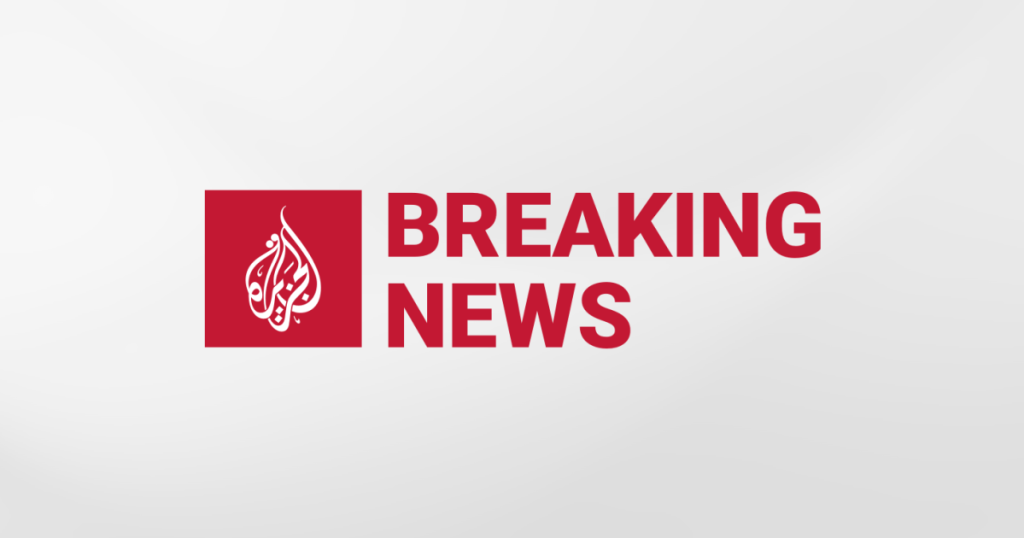
BREAKINGBREAKING, Judge Scott McAfee in the southern state of Georgia rules that the case against Trump ‘is hereby dismissed in its entirety’. Published On 26 Nov 202526 Nov 2025 Click here to share on social media share2 Share A Georgia prosecutor has dropped pending charges against Donald Trump over allegations of 2020 election interference by the United States president and his allies. Judge Scott McAfee granted the request to terminate the prosecution on Wednesday, putting an end to the last set of criminal charges against Trump. Recommended Stories list of 3 itemsend of list “This case is hereby dismissed in its entirety,” McAfee wrote. Trump faced four indictments in 2024, while he was out of office. Only one of the cases, in New York, proceeded to a trial. He was found guilty of falsifying business records in relation to a hush money payment to an adult film actress and sentenced to “unconditional discharge”, escaping any penalty like fines, probation or jail time. Two sets of federal charges against him — one over allegations of election meddling and another containing accusations of mishandling secret government documents — were dropped after Trump was re-elected president in November of last year. The prosecution in the Georgia case had already faced a setback when Fulton County District Attorney Fani Willis was disqualified from the case for having a romantic relationship with one of her top deputies. The case in Georgia centred on a call by Trump with the state’s top election official Brad Raffensperger after the 2020 vote in which he said he wants to “find 11,780 votes” to overturn the election. Trump had rejected the victory of his would-be successor, former President Joe Biden, falsely alleging that widespread voter fraud was behind the results. Advertisement In 2023, Willis charged Trump and 16 of his allies who challenged the election result in the state with racketeering and a string of crimes related to the vote. The US president – who made a stunning come back to the White House earlier this year – has always denied any wrongdoing in the cases against him, calling them a politically motivated “witch hunt”. This is a breaking news story. More details to come… Adblock test (Why?)
US ranchers whiplashed by Trump’s beef policies

It has been a whiplash-inducing month for the American rancher, one of United States President Donald Trump’s most steadfast voting blocs. Starting with an October 19 quip from Trump that the US would increase beef imports from Argentina to the ensuing rancher backlash against the announcement of an investigation into the hyperconsolidated US meatpacking industry and the dropping of tariffs on Brazilian beef, ranchers have found themselves caught between the president’s desires to appease both them and the American consumer in the face of high beef prices. Recommended Stories list of 4 itemsend of list US ranchers have enjoyed rising cattle prices, largely the result of the lowest herd numbers for beef cattle since the 1950s. Other factors constricting supply include the closure of the Mexican border to live cattle due to concerns over screwworm and steep tariffs on foreign beef. Cattle prices paid to ranchers are separate from consumer beef prices, which, as of September, were $6.32 for a pound (453 grams) of ground beef, an 11 percent rise from September 2024 when they were $5.67 a pound. The Bureau of Labor Statistics did not release economic data, including the consumer price index for last month, because of the government shutdown. Trump had no patience for the typically loyal ranchers objecting to his plan to import more Argentinian beef, which they saw as a threat to their recent economic gains. “If it weren’t for me, they would be doing just as they’ve done for the past 20 years – Terrible! It would be nice if they would understand that,” Trump wrote in an October post on his Truth Social platform. Advertisement While Corbitt Wall, a commercial cattle manager and market analyst, is clear that he “totally supports Trump and everything he does”, he also saw hubris and a misunderstanding of the cattle industry by the president. “There was not a person in the cattle business on any level that was not insulted by that post,” he told Al Jazeera. Wall religiously follows prices across the cattle trade from ranch to slaughterhouse and has watched the futures market for cattle slide down by more than 15 percent since Trump’s October 21 announcement. Futures prices dictate what ranchers can expect to sell cattle for down the line and sway current sale prices as well. For ranchers’ sake, Wall said he hopes Trump leaves the cattle market alone. “He doesn’t live in this world, in this cattle world, and doesn’t realise the impact that a statement can make in our business,” Wall said. Years of rough seasons Oregon rancher David Packham said that while cattle prices have jumped in ranchers’ favour, many are still struggling in the face of years of rough seasons. Years of drought across the country raised feed costs for all and pushed some ranchers to sell off cattle. Sticker prices on farm equipment from tractors to pick-up trucks have ballooned as well, especially on the back of supply chain challenges during the COVID-19 pandemic, and are expected to rise further on account of Trump’s tariffs. Packham said he has regularly sold cattle at a loss and doesn’t want consumers to think ranchers are living high off the hog. “I’m looking at a 40-year-old tractor that I use on a daily basis just to keep putting off replacing it, making repairs, although it’s difficult to find parts for now, just to keep it limping along because I couldn’t afford $100,000 for a new tractor,” Packham said. “When I say we’re not really making a whole lot of money, it’s because we have all this loss carryover.” Cattle are sold at Nevada Livestock Marketing in Fallon, Nevada [Courtesy of Corbitt Wall] Packham was a registered Republican until Trump’s first term. The president’s Argentina comments and the subsequent chaos for the cattle industry have propped open a door for ranchers critical of Trump, but they represent a minority within the community, he said. “I’m noticing more and more of them [ranchers] that had been cautiously neutral, that are now kind of like me and just saying, ‘You know what? No. This is bulls***. He’s a train wreck,’” Packham said. ‘Perennial issue’ One action ranchers can support, however, is Trump’s November 7 announcement of a Department of Justice investigation into the big four US meatpackers – Tyson, JBS, Cargill and National Beef – “for potential collusion, price fixing and price manipulation”. Advertisement Historically, ranchers looking to sell cattle have held little negotiating power as the four companies control more than 80 percent of the market. However, a prior Department of Justice investigation into meatpacker price-fixing was started under the first Trump administration in 2020 due to a gulf created by falling cattle prices and rising consumer beef prices. The investigation continued under President Joe Biden’s administration but was never publicly concluded. According to Bloomberg News, the investigation was quietly closed with no findings just weeks before Trump announced the November antitrust probe. James MacDonald, a research professor in agricultural and resource economics at the University of Maryland, views the administration’s antitrust investigation announcement as “entirely for political consumption”. “It is a perennial issue that p***es off ranchers, and you can gain some political ground by attacking the packers,” MacDonald said. Packham would prefer the new investigation to come at a different time and said that given the squeeze from the tight cattle market, packers are operating under slimmer margins and not from a position of absolute power. On Friday, Tyson announced the closure of a Nebraska beef-processing plant that employed more than 3,000 people. MacDonald called the decision a “shock” indicative of the depths of the US beef shortage. The current low cattle inventory in the US came from years of drought, which wiped out grazing lands and slowed herd rebuilding. Replenishing the cattle supply chain is a years-long process. “That’s sort of a fact and a fundamental, and it’s not going to change for a while,” MacDonald said. MacDonald also doesn’t believe the increased Argentina imports will ease this shortage
India, Pakistan to play T20 World Cup 2026 group match on February 15

Bitter rivals India and Pakistan will face off in Group A at next year’s 20-team competition. By News Agencies Published On 25 Nov 202525 Nov 2025 Click here to share on social media share2 Share Archrivals India and Pakistan will clash in a politically-charged Twenty20 World Cup match in Colombo on February 15, the International Cricket Council (ICC) said as it announced the draw on Tuesday. The 20-team tournament will be played across eight venues – five in India and three in Sri Lanka – between February 7 and March 8, the ICC said in a statement. Recommended Stories list of 3 itemsend of list Pakistan will play all their games in Sri Lanka because of their soured political relations with India. The March 8 final is scheduled for the western Indian city of Ahmedabad but would be moved to Colombo if Pakistan reach it. A military conflict between the nuclear-armed neighbours in May overshadowed the subsequent Asia Cup 2025 in which India refused to accept the winners’ trophy from Asian Cricket Council chief Mohsin Naqvi, who is Pakistan’s interior minister. The teams in the tournament have been divided into five groups of four, with the top two advancing to the Super Eight phase. The top four in that will qualify for the semifinals. Defending champions India will begin their Group A campaign against the United States in Mumbai on February 7. Sri Lanka and Australia are in Group B, which also includes Ireland, Zimbabwe and Oman. England and West Indies, both twice winners, will face first-timers Italy and Asian sides Bangladesh and Nepal in Group C. New Zealand, South Africa, Afghanistan, Canada and the United Arab Emirates make up Group D. Jasprit Bumrah, right, will spearhead the Indian bowling attack at the T20 World Cup 2026, to be staged in India and Sri Lanka [File: Francois Nel/Getty Images] Adblock test (Why?)
UN calls for probe into Israel’s strikes on Lebanon
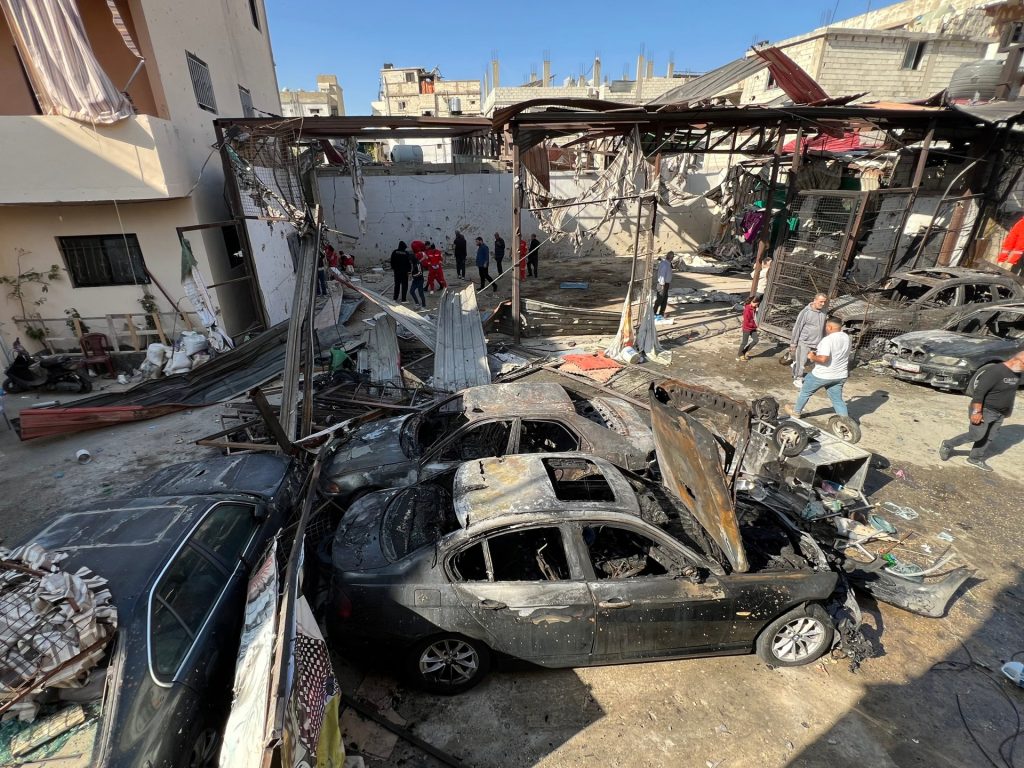
The UN human rights office has urged a “prompt and impartial” investigation into Israeli strikes in Lebanon, warning of possible violations of international humanitarian law nearly a year after a ceasefire was signed. Thameen Al-Kheetan, spokesperson for the UN High Commissioner for Human Rights, cited an attack last week on the Ein el-Hilweh refugee camp that killed 11 children. Recommended Stories list of 4 itemsend of list He said in a statement on Tuesday that all of those killed in the Ein el-Hilweh strike were civilians, raising “serious concerns that the Israeli military’s attack may have violated international humanitarian law principles on the conduct of hostilities”. Israel has killed more than 300 people in Lebanon since the November 27, 2024, ceasefire, including about 127 civilians, according to the UN. Israeli forces remain deployed in five areas of southern Lebanon and continue near-daily air raids, which Israel claims target fighters from the Lebanese armed group Hezbollah and its infrastructure. Al-Kheetan described last week’s strike on Ein el-Hilweh, near Sidon, as one of the deadliest since the ceasefire. “At least 13 civilians, including 11 children, were killed and at least six civilians injured last week in an Israeli strike on the Ein El-Hilweh camp,” he said. “There must be prompt and impartial investigations … those responsible must be brought to justice.” He said Israeli attacks have also hit homes, roads, factories and construction sites, hampering reconstruction in the south and preventing families from returning. He cited a November 16 strike on a cement and asphalt factory in Ansar, which destroyed dozens of concrete mixers, cranes and fuel tanks. Advertisement More than 64,000 people, mostly from southern Lebanon, remain displaced, according to the UN. Al-Kheetan said Israel had begun constructing a wall that crosses into Lebanese territory, rendering 4,000 square metres (43,055sq feet) inaccessible and undermining displaced people’s right of return. “All those internally displaced must be able to go back to their homes, and reconstruction should be supported, not tampered with,” he said. Escalation in Beirut The warning comes amid heightened tension after an Israeli strike in Beirut on Sunday killed a senior Hezbollah commander. Hezbollah said its chief of staff, Haytham Ali Tabtabai, was among five people killed and 28 injured in the attack in Dahiyeh. Experts say the attack marks a major escalation after Lebanon’s capital was struck for the first time in months, and days after Lebanon’s president announced that the country had agreed to talks following pressure from Israel and the United States to accelerate efforts to disarm Hezbollah. Hezbollah was severely weakened after an Israeli escalation in September 2024 that killed its longtime leader Hassan Nasrallah and other senior officials. Since the November ceasefire, the group has responded to Israeli attacks only once. Al-Kheetan has urged “all parties” to observe the ceasefire “in good faith”. “A genuine path towards a permanent cessation of hostilities is the only way to protect the human rights of civilians on both sides from the devastating effects of new hostilities. Accountability for violations of international human rights law and international humanitarian law must be realised,” he added. Meanwhile, Israel continues its genocidal war against the Palestinian people in Gaza despite a US-brokered ceasefire between Israel and Hamas, killing more than 300 people since the truce took effect in early October. At least 69,733 people have been killed in Israel’s genocidal war on Gaza since October 2023. Israel launched the genocidal war on Gaza after the Palestinian armed group Hamas led an attack on southern Israel on October 7, 2023, killing at least 1,129 people and seizing more than 200 others as captives. Hezbollah started firing rockets into Israel on October 8, 2023, in what it said was an act of solidarity with the Palestinian people in Gaza, beginning more than a year of escalating hostilities with Israel as the two sides frequently exchanged attacks across the border. Adblock test (Why?)
US-backed GHF ‘aid mission’ in Gaza ends – a timeline of violence

The Gaza Humanitarian Foundation (GHF), backed by the US and Israel to oversee the distribution of aid in Gaza, has announced it is ending its controversial “mission” and is closing aid distribution sites following a US-brokered ceasefire agreement. Under increasing international pressure to allow aid into the besieged Gaza Strip earlier this year, Israel and the US backed the GHF as an independent agency to administer aid. Israel completely blocked aid to the Strip from March this year, claiming that Hamas was stealing aid provided by the UN agency for Palestinian refugees, UNRWA. Israel did not provide any evidence for this and also blocked UNRWA workers from entering the Strip from February. Recommended Stories list of 3 itemsend of list While the UNRWA network operated about 400 sites across the Strip before that, the GHF, guarded by armed US private security contractors, set up only four “mega-sites” – three in southern Gaza and one near Gaza City – to distribute food and other aid to Gaza’s population of about two million Palestinians. Furthermore, since the organisation began operations in Gaza in May, Israeli forces and some US contractors have routinely opened fire on Palestinians arriving to receive aid. Disorganisation around the sites has caused large crowds to gather, and some people have suffocated or died in stampedes. While GHF Executive Director John Acree said in a statement on Monday that the organisation delivered the “only aid operation that reliably and safely provided free meals directly to Palestinian people in Gaza”, more than 2,000 aid seekers have been crushed to death or killed by gunfire, according to UN figures. Advertisement Here is how the GHF “mission” to Gaza unfolded this year: May 26 – GHF issues a statement announcing it will begin direct aid delivery inside the battered enclave, hours after its executive director, Jake Wood, resigned, citing concerns about the agency’s independence. The UN and other aid agencies refuse to work with GHF, warning that requiring Palestinians to gather at a few centralised aid points would put people at risk and undermine other aid efforts. May 27 – GHF begins operating in Gaza. Israeli forces open fire on thousands of Palestinians attempting to receive food in southern Gaza’s Rafah area, killing at least 10 people and injuring dozens. Aid seekers are forced to clamber over fences and push through packed crowds to reach life-saving supplies. UN spokesperson Stephane Dujarric says seeing thousands of Palestinians storming the aid site is “heartbreaking” as the chaos underscores the staggering level of hunger gripping Gaza. Gaza’s Government Media Office calls the incident a “deliberate massacre and a full-fledged war crime.” May 29 – Israeli forces open fire at an aid point in southern Gaza, killing 10 people and injuring dozens. Shortly after, multiple explosions are reported near another aid centre on the Netzarim Corridor, which divides northern Gaza from the rest of the Strip. It is not clear what caused the blasts, and there are no reports of casualties. May 30 – Israeli forces open fire on civilians waiting to collect food at a GHF distribution point on Salah al-Din Street in central Gaza, wounding at least 20 people. June 1 – Israeli tanks kill at least 32 Palestinians waiting to get food at two aid distribution sites in Gaza, leaving more than 200 others injured. June 3 – UN Secretary-General Antonio Guterres says the killing and injuring of Palestinian aid seekers is “unacceptable” and calls for an independent investigation after Israeli forces open fire close to an aid distribution site in Rafah. Gaza’s Health Ministry says at least 27 Palestinians have been killed in the incident and 90 injured. June 8 – At least 13 Palestinians are killed, and more than 150 are injured when Israeli troops and US security contractors open fire on crowds waiting for food near two aid distribution sites in Gaza, one east of Rafah and another near the Wadi Gaza Bridge. Gaza’s Government Media Office accuses Israel of turning distribution sites into “human slaughterhouses”. July 16 – At least 21 Palestinians are killed at a GHF aid distribution centre in southern Gaza. Witness accounts say Israeli forces opened fire on the crowd, causing a stampede. At least 15 people died of suffocation, while others were shot. Twenty-four-year-old Mohammed Abedin, who survived the incident, told Al Jazeera that they were “shot at like animals”. Advertisement July 22 – The United Nations says the number of Palestinians killed while trying to access food in Gaza from GHF distribution points has topped 1,000. [Al Jazeera] August 1 – A former contractor for GHF, Anthony Aguilar, tells Al Jazeera about what he describes as the deadly and unprofessional practices he witnessed firsthand at aid distribution sites in Gaza. This includes firing what the organisation described as “warning shots” on an unarmed population using heavy artillery. “They call that warning shots, I call it a war crime,” he said. August 2 – At least 38 Palestinians seeking aid at distribution sites operated by GHF are killed, despite Israel announcing on July 27 it would begin implementing “tactical pauses” in fighting in some areas to allow Palestinians greater access to humanitarian aid. August 5 – Twenty-eight UN experts call for GHF’s dismantlement, describing it as an “utterly disturbing example” of aid exploitation for military purposes. August 9 – Israel allows some aid to be airdropped into Gaza by several countries, including Germany, Belgium and Jordan, amid global outrage, but a 15-year-old Palestinian boy is crushed to death by a falling pallet during an airdrop near the so-called Netzarim Corridor in central Gaza. September 4 – The Office of the United Nations High Commissioner for Human Rights (OHCHR) says it has recorded more than 2,146 deaths in the vicinity of sites run by GHF and along aid convoy routes. October 12 – GHF confirms it has suspended operations following the announcement of a US-brokered ceasefire between Israel and Hamas, which came into effect on October 10. November 10 – A documentary, Breaking Ranks: Inside Israel’s
Trump launches ‘Genesis Mission’ to harness AI for scientific breakthroughs
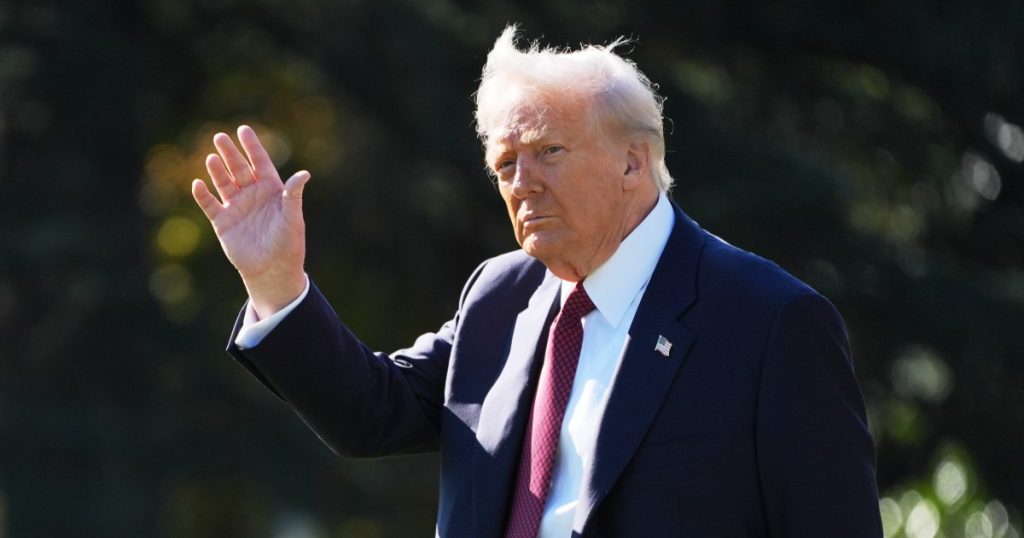
Trump signs order to integrate supercomputers and data assets in order to create ‘AI experimentation platform”. United States President Donald Trump has unveiled a national initiative to mobilise artificial intelligence (AI) for accelerating scientific breakthroughs. Trump signed an executive order on Monday to establish “The Genesis Mission”, the latest iteration of his administration’s aggressive strategy for spurring AI development through deregulation, infrastructure investment and public-private collaboration. Recommended Stories list of 4 itemsend of list Trump’s order directs US Energy Secretary Chris Wright to unite scientists and technologies at the country’s 17 national laboratories into “one cooperative system for research”. Under the initiative, US supercomputers and data resources will be integrated to create a “closed-loop AI experimentation platform”, according to the order. The White House, which likened the initiative to the Apollo programme that put the first man on the moon, said priority areas of focus would include the “greatest scientific challenges of our time,” such as nuclear fusion, semiconductors, critical materials and space exploration. Michael Kratsios, the White House’s top science adviser, said the initiative took a “revolutionary approach” to scientific research. “The Genesis Mission connects world-class scientific data with the most advanced American AI to unlock breakthroughs in medicine, energy, materials science, and beyond,” Kratsios said. Chipmaker Nvidia and AI startup Anthropic said on Monday that they were partnering with the Trump administration on the initiative. “Uniting the National Labs, USG, industry, and academia, this effort will connect America’s leading supercomputers, AI systems, and next-generation quantum machines into the most complex scientific instrument ever built – accelerating breakthroughs in energy, discovery, and national security,” Nvidia said in a social media post, referring to the US government (USG). Advertisement Since re-entering the White House, Trump has made cutting red tape to fast-track the development of AI a key plank of his economic agenda. Last week, Trump called on the US Congress to pass legislation to create a national standard for AI, while criticising state governments over their laws regulating the emerging technology. “Overregulation by the States is threatening to undermine this Growth Engine,” Trump said on his platform, Truth Social. “We MUST have one Federal Standard instead of a patchwork of 50 State Regulatory Regimes.” Benjamin H. Bratton, an AI expert at the University of California, San Diego, welcomed the initiative as a move toward the “diffusion” of the technology. “It is less important ‘whose’ AI people have access to than they have universal access at all,” Bratton told Al Jazeera. “Most attempts to throttle AI in the USA and EU come from cultural, economic and political incumbents protecting their turf.” “Those locked out of positions of artificially scarce social agency have the most to gain,” Bratton added. “I support diffusion, not any particular administration.” Adblock test (Why?)

